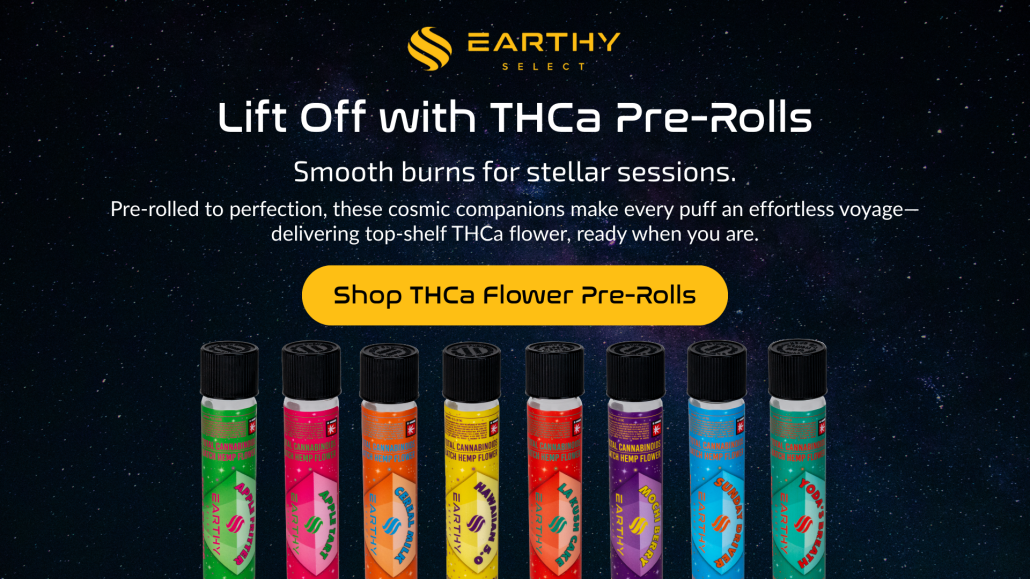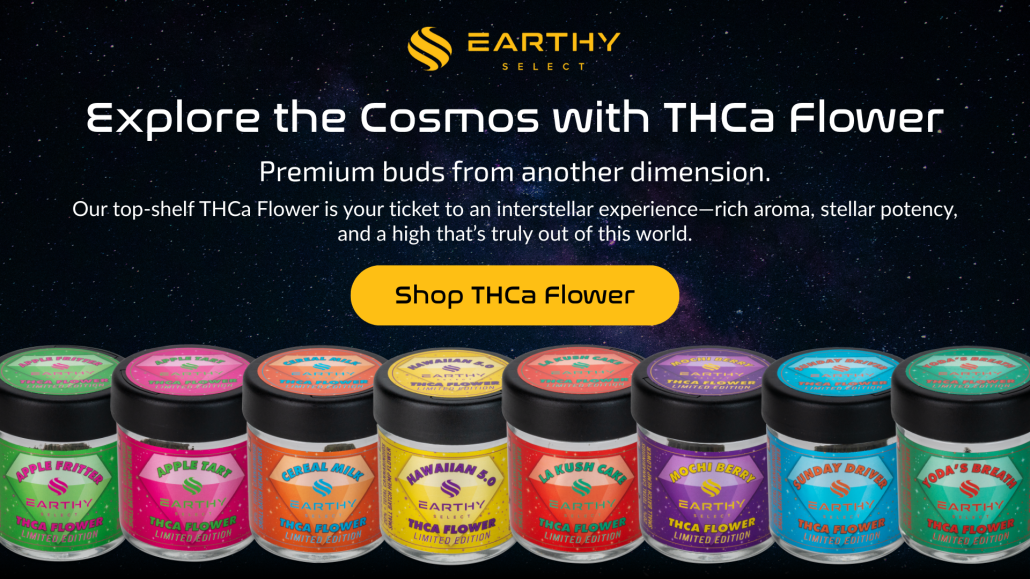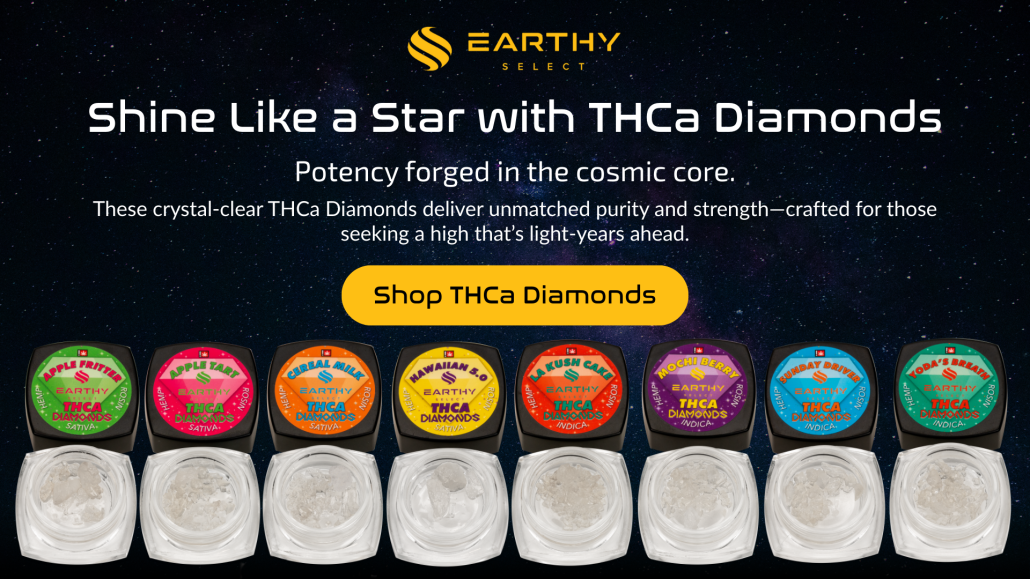Is THCa Legal in Pennsylvania? Everything You Should Know
Key Takeaways
- THCa’s legal status in Pennsylvania appears to be ambiguous due to differences between federal and state regulations, with the 2018 Farm Bill allowing hemp-derived products with no more than 0.3% Delta-9 THC, though state-specific rules on THCa remain unclear.
- Pennsylvania’s medical marijuana program does not appear to include raw THCa as an approved form, focusing instead on processed products designed for patient safety and consistent dosing.
- Navigating THCa in Pennsylvania may require understanding decarboxylation, prioritizing product safety through lab testing, and being aware of potential risks when traveling with THCa across state lines or by air due to varying regulations and enforcement approaches.
Cannabis regulations can be complex, particularly with emerging compounds like THCa. If you’re in Pennsylvania and asking, Is THCa legal?—the answer isn’t entirely straightforward. It often depends on how state and federal guidelines interpret this specific cannabis derivative.
At Earthy Select, we strive to stay well-informed and compliant with current laws. We source high-quality THCa Hemp Flower from trusted cultivators, and every product undergoes lab testing to ensure safety and purity. As knowledgeable partners in this space, we monitor legal developments closely to help you shop with confidence.
If you’re exploring THCa in Pennsylvania, this guide aims to provide clarity. We’ll briefly outline what THCa is, how state and federal regulations may apply, and what considerations might be relevant before purchasing. Let’s examine the details to help you make an informed decision.
Pennsylvania Hemp Statutes and What They Mean for THCa
Pennsylvania generally aligns with the 2018 Farm Bill, which permits hemp products—including THCa—if they contain no more than 0.3% Delta-9 THC by dry weight [1]. However, state regulations do not specifically address THCa, and since it can convert to Delta-9 THC when heated, its legal status may depend on testing methods and local interpretation.
While hemp products meeting the federal THC threshold are often regarded as permissible, ambiguity persists due to the lack of explicit state guidance on THCa. This uncertainty suggests that both consumers and businesses should proceed cautiously, ensuring products are properly tested and labeled to minimize potential legal concerns.
How Pennsylvania Defines Hemp and THC Limits
Pennsylvania follows the 2018 Farm Bill’s definition of legal hemp as cannabis with no more than 0.3% Delta-9 THC on a dry weight basis [1]. The state’s Department of Agriculture requires licensing for hemp growers and processors, and all crops are subject to testing to verify compliance with this THC limit. If a crop exceeds this threshold, it must be destroyed, and growers may face penalties [2].
THCa introduces additional complexity, as it is not directly addressed in Pennsylvania law but can convert to Delta-9 THC when heated. State testing protocols may calculate total potential THC, including both Delta-9 THC and THCa, which could render high-THCa products non-compliant even if raw Delta-9 THC levels are within limits [3]. This creates a potential gray area for both businesses and consumers as regulations surrounding cannabinoids like THCa continue to develop in Pennsylvania.
PA THCa Legality Under Current Statutes
In Pennsylvania, THCa—tetrahydrocannabinolic acid—appears to occupy a legal gray area. While THCa is not psychoactive until heated and transformed into THC, state law primarily focuses on THC and marijuana as controlled substances. The 2016 Medical Marijuana Act allows for regulated medical cannabis use, but recreational marijuana and most THC-containing products are generally prohibited [4].
THCa is not explicitly mentioned in state statutes, leading some to interpret it as potentially permissible under the 2018 Farm Bill’s hemp provisions (no more than 0.3% Delta-9 THC) [1]. However, Pennsylvania authorities have not provided definitive guidance on THCa, which may result in inconsistent enforcement. It’s worth noting that law enforcement could treat high-THCa products as marijuana if they suspect the intent is to convert them to THC through heating [5].
Until lawmakers or regulators offer clearer rules, THCa’s legal status in Pennsylvania remains uncertain, and a cautious approach is advisable for both consumers and businesses.
THCa vs. THC: Why the Difference Matters in Pennsylvania
So, what’s the difference between THCa vs Delta-9 THC in Pennsylvania? THCa, or tetrahydrocannabinolic acid, is the natural, non-psychoactive precursor to THC found in raw cannabis. When exposed to heat through processes like smoking or cooking—known as decarboxylation—THCa may convert into THC, the compound often associated with the psychoactive effects of cannabis [6].
This distinction appears significant in Pennsylvania, where only medical marijuana is permitted under strict conditions. Hemp products with no more than 0.3% Delta-9 THC are federally allowed, and THCa may often be overlooked since it isn’t intoxicating in its raw form [1]. However, once heated, THCa-rich products could potentially become psychoactive and might be considered non-compliant under state law if interpreted as marijuana.
Law enforcement may face challenges distinguishing THCa from THC in field tests, contributing to legal ambiguity [7]. Until Pennsylvania provides updated cannabis regulations specifically addressing THCa, consumers should remain mindful that what appears legal in its natural state could be viewed differently after heat is applied.
THCa Chemistry and How It Converts
What is THCa, chemically speaking? THCa, or tetrahydrocannabinolic acid, is the raw, non-psychoactive compound present in fresh cannabis. Unlike THC, it does not produce a high unless subjected to heat in a process known as decarboxylation. When cannabis is smoked, vaped, or cooked, heat typically removes a carboxyl group from the THCa molecule, transforming it into THC, which is associated with psychoactive effects [6].
This conversion isn’t limited to deliberate heating; THCa may gradually transform into THC over time with exposure to warmth or improper storage conditions. This suggests that careful handling is essential, as even slight chemical changes could influence both the effects and potential legal status of a product.
Therefore, consuming raw cannabis primarily involves ingesting THCa, which isn’t intoxicating but may be associated with certain wellness properties. Once heat is applied, the chemical structure shifts, potentially unlocking the effects commonly linked to Delta-9 THC. Understanding this transformation highlights the importance of processing and storage considerations for consumers and the cannabis industry alike.
Does THCa Qualify for Pennsylvania’s Medical Cannabis Program?
Pennsylvania’s medical marijuana program, established under Act 16 of 2016, sets strict guidelines on the types of cannabis permitted for patients with qualifying conditions. While the program allows for oils, tinctures, capsules, and vaporized dry leaf, it does not appear to explicitly include raw THCa products [4].
THCa, as the non-intoxicating precursor to THC, becomes psychoactive only after heating. Although THCa itself isn’t expressly prohibited, the law seems to prioritize processed and standardized cannabis products dispensed through licensed facilities. Without formal recognition of THCa as a standalone option, it is generally not offered as a raw product to patients at dispensaries in Pennsylvania [8].
While research into THCa’s potential medical applications continues, unless state lawmakers or health officials update the regulations, THCa does not currently appear to qualify for Pennsylvania’s medical cannabis program.
The State’s Medical Marijuana Laws Explained
Pennsylvania’s medical marijuana program, initiated in 2016 under Act 16, operates within a carefully regulated framework. Patients with qualifying conditions—such as chronic pain, PTSD, or cancer—must be certified by a state-registered physician and obtain a medical marijuana card. With this card, they may purchase cannabis products at approved dispensaries throughout the state [4].
The program permits various forms, including tinctures, oils, capsules, and flower—though smoking flower is not allowed; vaporization is the state-approved method. All products are subject to thorough lab testing for potency and safety to ensure consistency for patients. While Pennsylvania’s system is often regarded for its emphasis on safety and oversight, some patients may find it restrictive due to stringent rules, limited product options, and relatively higher costs. Recreational marijuana remains prohibited, and efforts for broader reform continue to be discussed [9]. For now, Pennsylvania’s medical marijuana laws appear to prioritize control and patient safety over expansive access, aiming to maintain quality and reduce potential risks.
Where Hemp-Derived THCa Fits In
Hemp-derived THCa seems to exist in a legal gray area in Pennsylvania. Under the 2018 Farm Bill, hemp and its derivatives are federally permissible if they contain no more than 0.3% Delta-9 THC [1]. THCa itself isn’t psychoactive until heated, converting to THC, the compound associated with intoxication. Pennsylvania’s medical marijuana laws do not specifically address THCa, and with recreational marijuana still prohibited, hemp-derived THCA appears to remain in regulatory uncertainty [5].
Due to the absence of clear state guidelines on THCa, enforcement may vary. Some authorities might classify high-THCa hemp flower as marijuana if it exceeds the THC limit upon testing, while others may be uncertain about how to approach it. This lack of clarity could pose risks and confusion for consumers and businesses until Pennsylvania provides updated regulations on hemp-derived compounds.
Safe Ways to Enjoy THCa in Pennsylvania
Curious about how to explore THCa in Pennsylvania with confidence? While marijuana laws in the state are stringent, THCa—cannabis’s non-psychoactive precursor to THC—may offer some intriguing possibilities if approached with care. Here’s how to consider concentrates, gummies, and exotic flower in a responsible manner.
THCa Concentrates and Gummies
THCa concentrates, such as dabs or oils, are often noted for their potency once heated, converting THCa into psychoactive THC. Given the lack of state regulation for recreational cannabis, it’s advisable to source these only from trusted vendors who provide third-party lab reports confirming purity and the absence of contaminants.
THCa gummies tend to be discreet and easy to dose, generally retaining THCa in its raw, non-psychoactive form unless decarboxylated. Gummies might be associated with wellness benefits, though market quality can vary. It’s typically recommended to choose clearly labeled products from reputable sources to ensure reliability.
Exotic THCa Flower Options
For those who prefer smoking or vaping, THCa flower may offer distinct flavors and profiles. It’s often suggested to select flower strains grown using organic methods and to verify lab tests ensuring they are free of pesticides, mold, or additives. It’s worth noting that public cannabis use remains prohibited in Pennsylvania, even in areas with decriminalization for small amounts [10].
Ultimately, considering THCa in Pennsylvania may hinge on making well-informed decisions—emphasizing quality, lab testing, and personal safety at every step.
Traveling With THCa In and Out of Pennsylvania
Traveling with THCa in and out of Pennsylvania requires careful consideration of both state and federal regulations. While Pennsylvania may permit hemp-derived THCa under the 2018 Farm Bill (if it contains less than 0.3% Delta-9 THC), crossing into neighboring states could introduce different legal frameworks [1].
State Borders and Federal Rules
Some states may view THCa flower as prohibited since it can convert to psychoactive THC when heated. If driving, it’s advisable to research the regulations of every state you’ll pass through. Carrying documentation like lab reports to demonstrate product compliance is often recommended, though roadside officers may not always recognize or accept the distinction—some data suggests field tests can misidentify legal hemp as marijuana [11].
Air Travel vs. Road Travel
Federal law introduces additional considerations: even with compliant THCa, crossing state lines places you under federal oversight. Air travel may carry heightened risks. While the TSA might not actively search for cannabis, they are required to report it to authorities if discovered, and the FAA generally prohibits all cannabis products (including hemp-derived) on flights [12]. This suggests that flying with THCa could pose significant legal concerns. If travel is necessary, driving might be a more cautious option, though remaining well-informed and prepared to verify your product’s legality at any time is advisable. Until regulations are clarified, transporting THCa may involve inherent uncertainties.
Final Thoughts
The legal status of THCa in Pennsylvania appears complex, situated between federal guidelines and the state’s more restrictive cannabis regulations. At present, hemp-derived THCa products meeting the federal threshold of less than 0.3% Delta-9 THC may be considered permissible, though Pennsylvania’s lack of specific guidance introduces uncertainty [1].
At Earthy Select, we place a high priority on quality, compliance, and transparency. Our exotic THCa Flower is produced under rigorous standards to ensure safety and potency. As the regulatory environment continues to evolve, you can rely on us to provide current and accurate information to support informed and confident decisions.
Read more:
Frequently Asked Questions About THCa and Pennsylvania Law
Does the 2018 Farm Bill impact THCa legality in Pennsylvania?
Yes, it appears so. The 2018 Farm Bill legalized hemp and its derivatives at the federal level, including THCa, provided they are derived from hemp with no more than 0.3% Delta-9 THC [1]. However, enforcement in Pennsylvania may vary, particularly concerning product use and production. It’s advisable to stay updated and purchase from sources offering lab-tested, compliant products.
Is it legal to make your own THCa products in Pennsylvania?
Producing THCa products at home may fall into a gray area. While raw hemp flower containing THCa may be permissible under federal law, processing it—particularly if it converts to psychoactive THC—could potentially conflict with state regulations [5]. Reviewing current guidelines or consulting legal experts before creating homemade cannabinoid products in Pennsylvania is generally recommended.
Are there pending legislative changes about THCa in Pennsylvania?
As of 2025, no specific legislation targeting THCa appears to be pending, though Pennsylvania lawmakers are discussing broader cannabis policies, including potential recreational legalization, which could influence hemp-derived products. The regulatory landscape may shift, so staying informed through state updates or advocacy groups is often suggested [9].
Is THCa legal for recreational use in Pennsylvania?
Recreational cannabis use remains prohibited in Pennsylvania. While hemp-derived THCa meeting federal standards might be allowed, potential legal risks persist, particularly if authorities misinterpret products [5].
Is THCa legal for medical use in Pennsylvania?
THCa does not appear to be recognized as an approved product within Pennsylvania’s medical marijuana program. The law seems to focus on other cannabis forms rather than raw hemp-derived THCa [4].
Can you travel with THCa in Pennsylvania?
Traveling with THCa in Pennsylvania may carry risks. Even if it qualifies as legal hemp under federal law, law enforcement might not distinguish it from marijuana. Keeping products in original packaging and carrying lab results could help minimize potential confusion [11].
Are there age restrictions for purchasing THCa in Pennsylvania?
While state regulations remain unclear on this point, reputable vendors typically require buyers to be at least 21, aligning with federal guidance for hemp-derived products.
Are there limits on how much THCa I can possess in Pennsylvania?
No specific state limits appear to exist, though possessing large quantities might raise suspicion. It’s often advised to keep only what is needed and maintain documentation to demonstrate that your product qualifies as legal hemp [5].
Medical Disclaimer / Legal Disclaimer – Information is provided for educational purposes only. It does not, and is not intended to, constitute legal advice or medical advice. We strive to be accurate and up-to-date, but the legality of cannabinoids and the science of cannabis are continually evolving. The author is neither a legal professional nor a medical expert. Before buying or using any products, you should consult with your local authorities and medical providers.
References:
- https://www.congress.gov/bill/115th-congress/house-bill/2
- https://www.pa.gov/agencies/pda/plants-land-water/hemp/hemp-program-faqs
- https://www.federalregister.gov/documents/2021/01/19/2021-00967/establishment-of-a-domestic-hemp-production-program
- https://www.legis.state.pa.us/cfdocs/legis/li/uconsCheck.cfm?yr=2016&sessInd=0&act=16
- https://www.mpp.org/states/pennsylvania/
- https://doi.org/10.1111/j.1476-5381.2011.01238.x
- https://goldcanna.com/blogs/news/is-thca-legal-in-pennsylvania#:~:text=THCA%20vs.,us%20recognition%20across%20the%20industry
- https://www.health.pa.gov/topics/programs/Medical%20Marijuana/Pages/Medical%20Marijuana.aspx
- https://www.spotlightpa.org/news/2025/02/josh-shapiro-pennsylvania-budget-legal-weed/
- https://www.legis.state.pa.us/WU01/LI/LI/US/HTM/1972/0/0064..HTM
- https://forensicresources.org/2021/thca-one-abbreviation-two-compounds/
- https://thehempdoctor.com/blog/can-you-fly-with-thca/






